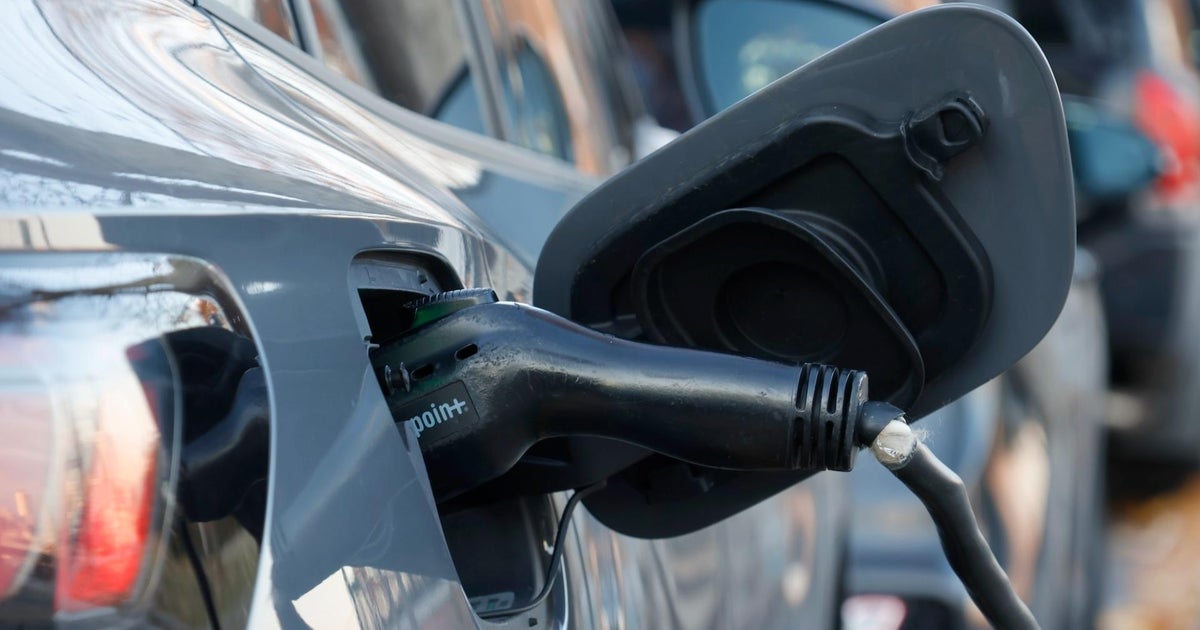CBS News
3 ways the CDK cyberattack is affecting car buyers

The ransomware attack on CDK Global is not only hampering car dealerships nationwide — it’s also complicating life for car buyers.
Some 15,000 dealers rely on CDK’s dealer management software to run their business, including handling various aspects of buying or leasing a vehicle, such as adding dealer incentives and generating a discount for trade-ins. But last week’s cyberattacks are disrupting the sales process, experts told CBS MoneyWatch, while also throwing a wrench into what is a major financial decision for consumers.
Here are three ways the CDK incident is impacting car buyers.
Delays in buying a vehicle
Car dealerships use CDK’s software to track what vehicles are on their lots, conduct credit checks, generate interest rates for auto loans and complete sales contracts, among other functions. But the attack on the platform has forced dealership staff to perform those tasks by hand, greatly slowing the process of buying or leasing a car, Jessica Caldwell, head of insights at Edmunds, told CBS MoneyWatch.
“If you’re bringing a check to the dealership or cash, then you’ll be OK,” she said. “Otherwise, you have to bring your patience because it’s a real headache.”
One way car shoppers can expedite the buying process is to call ahead to a dealership and specify what vehicle you’re looking for, enabling staffers to see if it’s in stock, said Jennifer Newman, editor-in-chief of Cars.com. Shopping around for an auto loan, perhaps with a bank or credit union, can also speed things up.
“Having a pre-approved loan on hand will allow you to keep the car deal moving forward should that be an issue for the dealership,” she said. “However, keep in mind that often the best rate may come from an automaker, which is only available through the dealership.”
Prepare to visit the DMV
Once someone makes a purchase at a dealership, the CDK system automatically registers the vehicle at the local Department of Motor Vehicles (DMV). Agents at the DMV then generate the official registration paperwork, including the new license plate.
But that process is also taking longer following the hack, the experts said. With CDK platform down, Caldwell said she has heard that some dealers and customers have resorted to trooping down to their local DMW to register a new purchase in person. That means longer lines at the DMV, Caldwell said.
To be sure, such hitches should be resolved quickly once the CDK software is fully functioning again. But that could take several more days — the company told dealerships on Tuesday that all dealers won’t be back online before June 30.
Longer waits for vehicle service
With CDK down, it’s taking dealer repair shops longer to service vehicles, experts said. That’s because dealerships use CDK’s software both to schedule service appointments and to keep track of what car parts the shop has available to complete repairs.
For now, some dealer service staff are using spreadsheets and other online tools to keep things moving, but that’s a band-aid, Caldwell said.
“If you’re a major car dealership repair shop, you’re doing many fixes per day,” she said. “If you’re having to record inventory in parts by hand, that’s going to take away time you’re spending serving customers.”
CBS News
Page Not Found: 404 Not Found
The page cannot be found
The page may have been removed, had its name changed, or is just temporarily unavailable.
Be the first to know
Get browser notifications for breaking news, live events, and exclusive reporting.
CBS News
Details on bill to avert government shutdown

Watch CBS News
Be the first to know
Get browser notifications for breaking news, live events, and exclusive reporting.
CBS News
Explosion kills 2 Mexican soldiers in suspected booby trap by drug cartel after troops found dismembered bodies

An improvised land mine apparently planted by a drug cartel killed two Mexican soldiers and wounded five others, Mexico’s defense secretary said Tuesday. Before the blast, the soldiers had discovered the dismembered bodies of three people, officials said.
Gen. Ricardo Trevilla acknowledged that the army had already suffered six deaths from such improvised explosive devices, or IEDs, between 2018 and 2024. But he didn’t specify whether those six had been killed by bombs dropped from drones, or by buried roadside bombs, both of which have been used by gangs in Mexico.
Trevilla said that devices like the one that exploded Monday were “very rustic,” and officials in the past have described them as similar to buried pipe bombs. There was no immediate information on the condition of the five wounded in the attack, which included at least one officer.
Trevilla’s description of the location where the two soldiers died Monday in the western state of Michoacan suggested that it may have been a sort of grisly drug cartel booby trap.
Trevilla said the army sent out a patrol to check on reports that there was an encampment of armed men in a rural area. The armed forces detected an area protected by stockades that appeared to be an encampment, but when soldiers approached in vehicles, they found the trail blocked by logs, so they descended and had to approach on foot.
While approaching, they spotted three dismembered bodies near the encampment, which appeared to be abandoned. But as they drew closer, a buried device exploded and struck the soldiers.
Trevilla blamed the blast on the United Cartels, an umbrella group that includes the local Viagras gang, which has been fighting bloody turf battles against the Jalisco cartel in Michoacan for years.
In August, the Mexican army acknowledged that some of its soldiers have been killed by bomb-dropping drones operated by drug cartels.
Previously, officials have said the army encounters far more roadside bombs than drone-dropped ones.
The Jalisco drug cartel has been fighting local gangs for control of Michoacan for years, and the situation has become so militarized that the warring cartels use roadside bombs or IEDs, trenches, pillbox fortifications, homemade armored vehicles and sniper rifles.
Nemesio Oseguera-Cervantes, also known as “El Mencho,” the leader of the Jalisco cartel, which the officials described as “one of the world’s most violent and prolific drug trafficking organizations.” The United States and the State Department has offered a $10 million reward for his capture.
In the only previous detailed report on cartel bomb attacks in August 2023, the defense department said at that time that a total of 42 soldiers, police and suspects were wounded by IEDs in the first seven and a half months of 2023, up from 16 in all of 2022.
Overall, 556 improvised explosive devices of all types – roadside, drone-carried and car bombs – were found in 2023, the army said in a news release last year.







